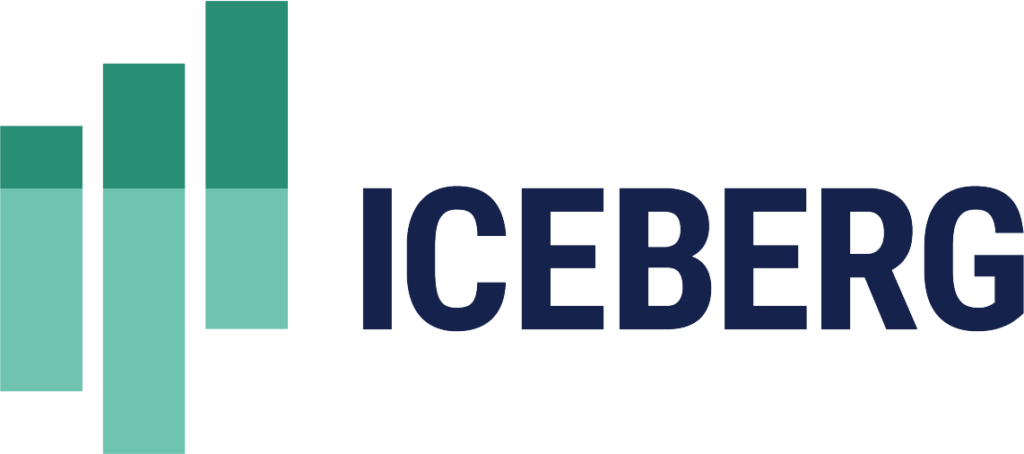Does forecasting matter to a company that’s pulling in less than $1m ARR?
What factors should sales leaders be taking into consideration when forecasting?
Is forecasting overrated? What should you focus on instead?
These were all questions that came up from a recent RevOps Roundtable for Saleshackers that Iceberg founder, Taft Love, did along with four other RevOps experts (Jackie Leahy, Ana Pau, TJ Macke, and Krystal Diel).
Their discussion about forecasting brought up some valuable insights that are particularly relevant to VPs of Sales in scaling companies, so we’d like to build upon it here to discuss if forecasting is overrated and what you can focus instead.
Forecasting: is it overrated?
Forecasting is a topic that can cause Sales leaders and CEOs to break out in a cold sweat, especially if they’re struggling to understand their reports and have an all-important board meeting coming up.
So it’s not surprising that Tess asked the group to bring their sales forecasting hot takes to the table and Jackie Leahy kicked off with her assertion that forecasting is overrated.
Ana Pau and Taft were quick to respectfully disagree.
Ana summarized it well by saying; “You have to know your forecasting, especially if you want to grow and not just be in growth-phase whenever you become a public company.”
We’d also go as far to suggest that forecasting is more important and nuanced now than it’s ever been.
If the global pandemic taught us anything it’s that events beyond our control can smash a monster truck through our best laid plans. 2020 upturned every company’s forecasts and predictions about their growth (some for the worst, some for the best) and it’s definitely going to affect how we forecast going forward.
For example, you may need to treat historical data with a very cautious eye and look for new baselines that reflect the changed selling landscape we find ourselves in.
How have your customers’ buying behavior changed since 2020?
How have their needs changed?
How has your own sales process and team changed? What have you needed to adapt to in order to keep the lights on?
As we tentatively adapt to the proverbial “new normal”, reliable forecasts can create an extra safety net for your company in a potentially more volatile marketplace post-covid. The more you can predict about your revenue and growth, the more prepared you are to deal with the unexpected.
And investors like to see that your company is preparing for potential struggles and pressure points as we move towards a possible recession.
“[The possibility of an upcoming recession] has affected our decisions to invest”, comments Ameet Mehta, CEO of FirstPrinciples; “If they’re forecasting an upcoming recession, I want to know what this means for them contracting or expanding, substantial investments needed, etc. and projected ROI.
“I expect to see the company’s capacity and scope in terms of quality, quantity, and pricing; how many pressure points they have or potential future pressure points; how their decisions will affect any future capacity issues and how they plan to take on any shortages.”
But forecasts are only as good as the data being fed to them.
If you’re working with flawed data and broken processes then your forecasts are untrustworthy, which brings us to Jackie’s astute follow-up point which clarifies her original hot-take.
Related Content: How RevOps Can Add Value During an Economic Downturn
Why Forecasting Might Not Be Your Priority
Jackie mentioned that her hot-take about forecasting being overrated comes with an asterisk: “When I’m talking to companies who are sub 1 million in ARR and they’re looking at their forecasts [I think it’s more important] to ask: what’s the sales process?”
The group’s heads were bobbing in agreement here.
Almost every client Iceberg deals with thinks they have a solid sales process and they don’t need help with it, until we dig a little deeper and find out that that’s definitely not the case.
But having your sales process nailed down is only one step to being able to accurately forecast. If we had a nickel for everytime a VP of Sales wanted us to help them forecast without first understanding even the basics of what’s going on in their pipeline…well, we wouldn’t be millionaires, but we could probably buy a nice steak dinner.
Taft asked Jackie what she would take into consideration to evaluate whether a company is ready for forecasting and she honed in on the stages of their sales process.
According to Jackie these should be:
- Clear entry and exit criteria for the stages
- Simple stages that can be explained in terms of the customer’s journey
- Consistent, confident answers among sales reps about how to move a customer from one stage to the next
We definitely agree with Jackie that these are all important considerations and can highlight issues with a company’s sales process, but Taft’s own “hot-take” was this: stages don’t matter to forecasting, at least not for smaller companies.
Should Sales Stages be Divorced from Forecasting?
While sales stages can be tied to a percentage for forecasting, it can only work in aggregate. If we’re talking about a large data set over a long period of time then we can start to correlate sales stages with a forecast category or a forecast percentage.
But when you’re a small team that doesn’t have a large data set yet and your available data only covers a short amount of time, then your sales stages should only speak to where the customer is in the buying process, not to how likely they are to close.
Taft illustrated this with the following example:
“An AE has a deal with a company, let’s say Zoom Info, and they’re selling them some SaaS. Zoom Info has asked for a proposal so the AE moves the deal to ‘proposal sent’ which comes just before ‘commit’. Now let’s say the forecast category is then set to ‘best case’–it’s all very straightforward.
Until it takes a nosedive.
Imagine the AE learned that Zoom Info shares a board member with your main competitor and the CTO used to work at your competitor’s company. Just like that, the fact that they asked you for pricing looks a lot less likely to mean you’re on your way to closing a deal with them, rendering their sale stage meaningless. I would then omit that deal.
My goal is to help companies build this discipline early on so they avoid getting lazy by simply setting the deal stage and allowing Salesforce to automatically set the forecast category.”
So if opportunity stages shouldn’t impact forecasting for smaller companies, what should?
The Three Things That Need to Triangulate To Accurately Forecast
- When a deal is going to close
- What it’s going to be worth
- How likely it is to be closed
While stages are a great proxy for the level of maturity of a company, we believe they shouldn’t impact forecasting.

Related Content: How to Motivate and Incentivize Your Sales Reps
Forecasting is Overrated When You Don’t Have the Fundamentals In Place
To circle back to Jackie’s original hot-take: we don’t think forecasting is overrated but she makes an excellent point that forecasting is not the top priority for many smaller companies.
That’s not because it’s unimportant, but because their inability to accurately forecast is usually only the tip of a much bigger RevOps Iceberg. Below the surface there are many smaller problems that accumulate in the form of reports and numbers that just don’t make sense, forecasts included.
Without tackling all those smaller issues you’ll always be struggling to forecast, but finding and fixing them all can feel like a game of whack-a-mole. You fix one thing only for another problem to pop up somewhere else.
That’s where we can help.
Iceberg helps growing B2B companies scale with ease by tackling the root causes of their operations issues. We bring together strategic planning with technical know-how to align your tech stack, dashboards, and reports to serve your wider business goals.
Special thanks to Ameet Mehta who kindly provided us with a quote for this article. Ameet is CEO of FirstPrinciples, a venture holding company, and founder of SyndicationPro, a real estate syndication software.


